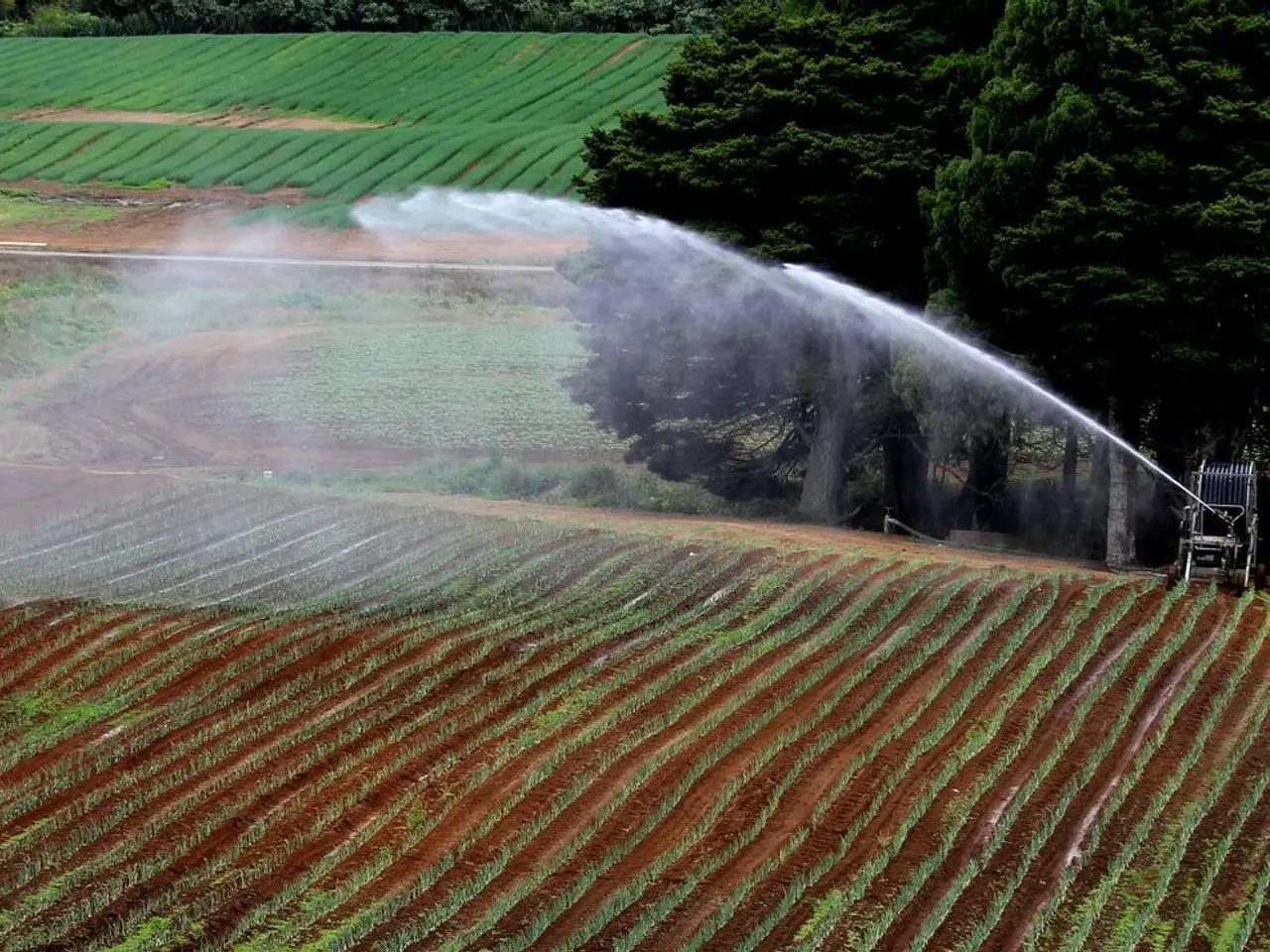Farmers express concern over potential crop damage due to persistent rainfall
Heavy Rain Puts Baden-Württemberg Grain Harvest at Risk
Heavy rainfall in Baden-Württemberg, Germany, is causing concern among farmers as it threatens the quality and yield of the grain harvest, particularly for crops like wheat, rye, and oats.
According to the Baden-Württemberg Agricultural Association (BLHV), a significant portion of the fields are still unharvested, with 70 to 90 percent of the crops yet to be brought in. The ministry of Agriculture in Stuttgart has stated that the impact of the rain on the quality of the harvest is significant, especially for the mentioned grains.
The excessive rain is causing waterlogging, reducing oxygen availability to grain roots, which hampers plant growth and reduces yields. It also increases the risk of fungal diseases, such as Fusarium head blight or rusts, which degrade grain quality by contaminating kernels and reducing their milling and baking properties.
Wheat and rye, which are moderately susceptible to water stress caused by excess water, are particularly affected. Oats, while generally tolerating wetter conditions better, are still vulnerable to disease pressure in overly moist environments.
The pressure on farmers to harvest their crops is increased due to the recent rain, especially in areas where harvesting is usually done early. Regions like the Franconian Plateau, Hohenlohekreis, Neckar-Odenwaldkreis, Kraichgau, Rhine-Main, and parts of the Main-Tauber district, are affected by this time pressure.
On the other hand, higher-elevation areas like the Swabian Alb or the southeastern part of the state with alpine influence, which had sufficient rainfall, are less affected. A large portion of the grain harvest has not yet been brought in, especially in higher elevations like the Baar, Hegau, or Lake Constance region.
The unharvested grain in these regions is particularly at risk, as stated by the BLHV President, Bernhard Bolkart, who warned that what is still standing in the fields is at risk in terms of quality. High humidity and warmth can promote fungal diseases that significantly impair the quality of the harvest, according to the Ministry of Agriculture in Stuttgart.
The BLHV has emphasized the need for sun over rain at this stage of the harvest, stating that "nature needs water, but the harvest needs sun now." While the direct effects on the specific grains in Baden-Württemberg are not yet fully documented, agronomic understanding of grain crops in temperate European climates like Germany consistently points to excessive rainfall as a risk factor for lowering both yield and grain quality.
Detailed agronomic studies or regional agricultural extension reports would be most informative for precise localized effects, but these are beyond the available context here. Farmers in Baden-Württemberg will continue to monitor the situation closely and take necessary measures to protect their crops.
The heavy rain in Baden-Württemberg affects the quality of the grain harvest, particularly for crops like wheat, rye, and oats, which are subject to fungal diseases due to the moisture.
Given the unharvested state of many fields and the risk of fungal contamination, the need for sun to counteract the moisture and prevent further quality loss is emphasized.








